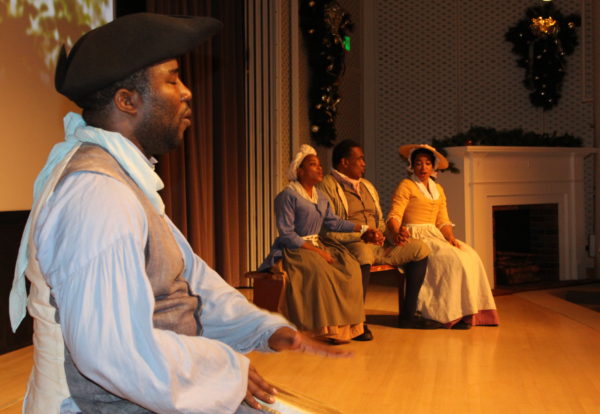
A stolen hour in a quiet spot, somewhere near the edge of town. Rhythms pounded out on a djembe break the silence. “With the beat of this drum I call on the ancestors!” bellows Israel.
Soon he is joined by three other members of Williamsburg’s enslaved community, who sing out a gorgeous harmony that seems a sharp contrast to the reality of their bondage.
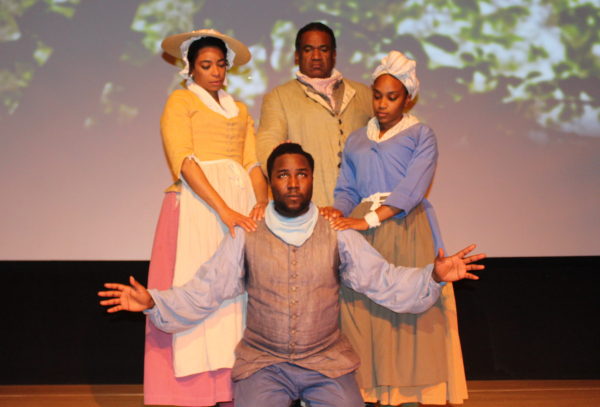
But hope in the face of oppression, grace in a season that invites it, is exactly the point of Joy in the Morning. The program is a celebration of the human spirit in the face of adversity, an hour of music punctuated by conversation that addresses the anxieties and doubts they all face.
The show, which is being staged on Fridays through Dec. 23 at Hennage Auditorium, features characters who really lived in 18th-century Williamsburg. The cast includes Katrinah Lewis as Lydia Broadnax and Horace Smith as Benjamin, both members of George Wythe’s household; Jeremy Morris as Israel Kemp, who was owned by Rev. John Bracken but became an ordained minister; and Marjorie Southerland as Millie, a worker in the Raleigh Tavern.
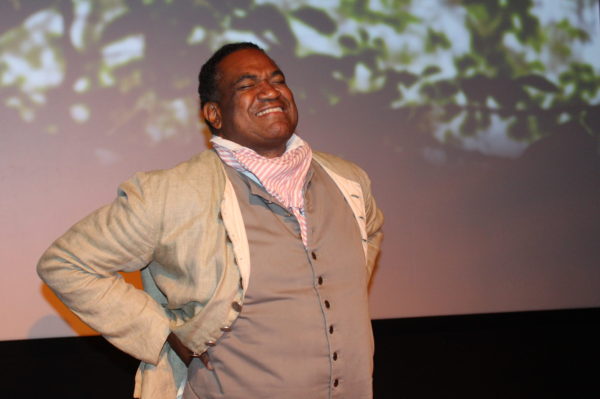
Despite the historical touchpoints, the show is intended to transcend a particular time and place. While we know a little bit about these people, most details of their lives are forever lost. “Their voices were not meant to be heard,” said Jeremy. “So we’re charged with telling the story of people whose history was deliberately erased.”
The “joy” of the title is a nod to the bond shared by four enslaved people who are part of a community that they lean on for support. Away from the gaze of white masters, they are free to be themselves, to share an occasional laugh along with their troubles. Whether or not they are related by blood, they are “a joyful people thrust into a miserable condition.”
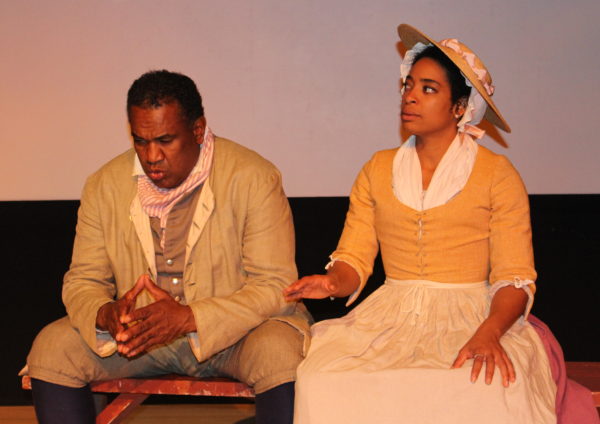
What takes place in this space is not a linear narrative, but a free-flowing conversation that invites the audience to relate at a basic human level to timeless themes: love and loss, violence and cruelty, and how we bear witness and carry the scars of those experiences.
The music, mainly hymns and spirituals, is stirring. Katrinah searched for songs that captured the themes of the program. Ranging from “Amazing Grace” to “Kumbaya,” they are intended to set a mood rather than represent faithful recreations of 18th-century songs. Some familiar lyrics, however, such as “Joy to the World,” are performed with period melodies rather than what we know today.
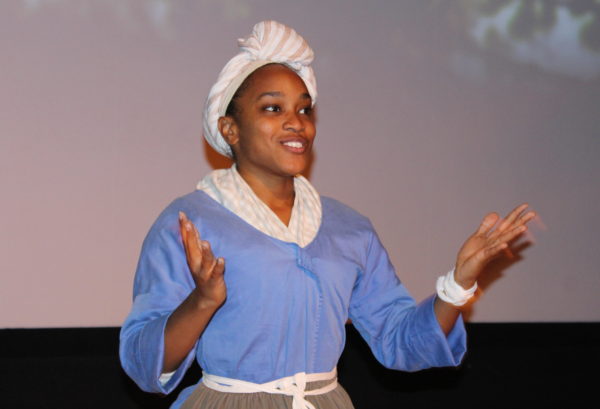
Marjorie’s poignant rendition of “Sometimes I Feel Like a Motherless Child” is a good example of how the music is used to create a sense of place out of time. While the song can only be dated to the mid-19th century, it comes out of the tradition of spirituals that were often passed down orally for generations before being written on sheet music or recorded.
Katrinah pointed out that the holiday season is not a happy one for all people, for all sorts of reasons. She expresses the hope that Joy in the Morning might help a little, offering “a blessing from the music.”
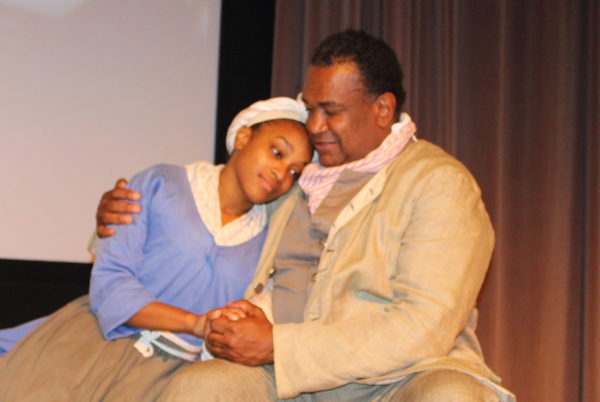
Katrinah imagined the characters as archetypes: a father figure and a mother figure, a young woman coping with a personal loss, and a young man who is questioning his faith. This could be the story of enslaved person, but it is also everyone’s story.
However secular Christmas has become today, for an 18th-century enslaved person the season presented contradictions that would have been very difficult to resolve. How can you believe in a just and merciful God when your humanity is denied?
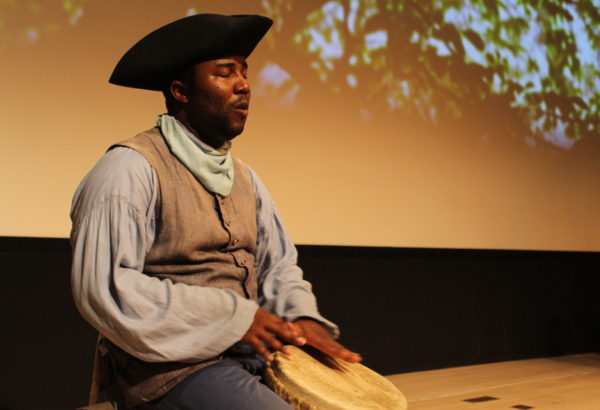
Such questions are part of the dilemma faced by Israel Kemp, played by Jeremy. Kemp was the property of an Anglican preacher, probably born in the 1750s. He married, gained his freedom in 1796, and died in 1827. Joy in the Morning shows him as a young man wrestling with fundamental questions concerning his faith.
Jeremy related to his character. “These are the questions I asked my mother when I was young,” he says. “She always encouraged me to keep searching for the truth.”
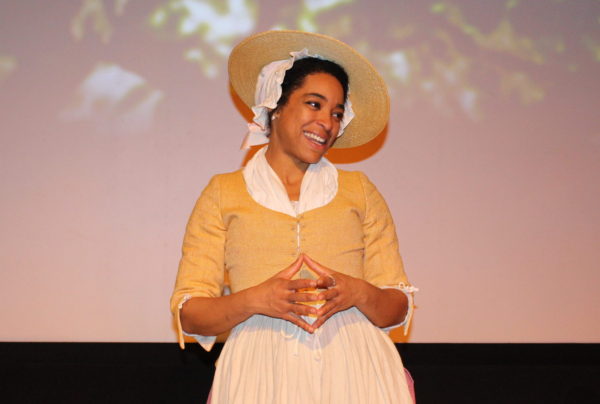
Katrinah hopes that audiences will walk away with an appreciation for how African American communities retained hope and determination in the worst possible circumstances. “These people were enslaved,” she says, “but that’s not all they were.”
It’s an opportunity for empathy. And if someone is going through a hard time, perhaps it offers some hope, too, showing that it’s ok to sing, laugh, or tell a silly story like the one Benjamin shares to lighten a mood that has become heavy.
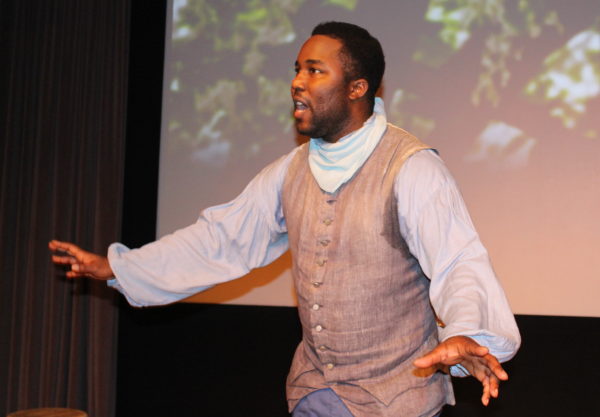
Toward the end of Joy in the Morning, Israel confidently declares, “The promise and the truth of this season is that the light will always return.” His optimism captures the hopeful message of this uplifting and thought-provoking program of music and conversation.
Joy in the Morning is presented Friday, Dec. 16 and Dec. 23 at 11:15 a.m. at Hennage Auditorium. Tickets are $3 in addition to museum or Colonial Williamsburg admission. Reserve your tickets here.
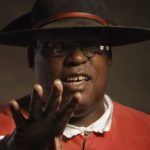
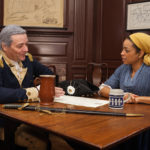

ARRRRGGGGG! I SO much wish I could see this. These are my wife’s and my favorite interpreter/actors in CW.
We love the “founders” too of course. But nothing provokes so much thought and feeling in us as the interpretation of the lives of the enslaved and free African-Americans. And the quality of work this group brings is just great.
We were just there the week before Thanksgiving and will return in March.
IF this returns in March we will be beating a path to it.
My thanks for the work these talented people put into these programs.
That sentence does not begin to express how thankful we are for it though.
I realized that this being a Christmas oriented program I won’t get to see it.
But I know this group will be doing other good things when we are there in March.
It would be great if these programs could be filmed and placed on you tube. It might attract more visitors to CW.